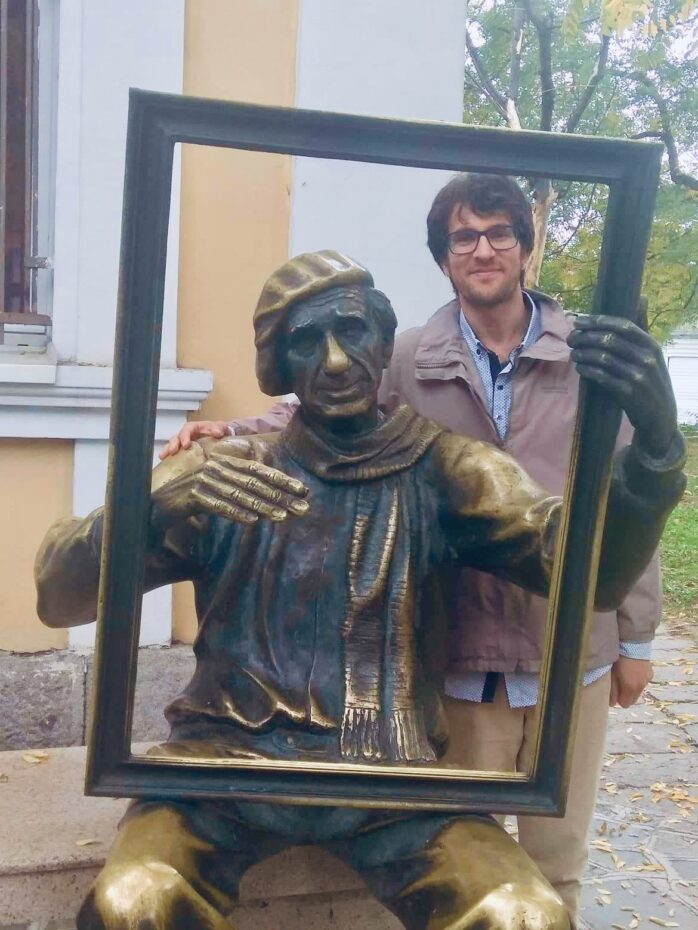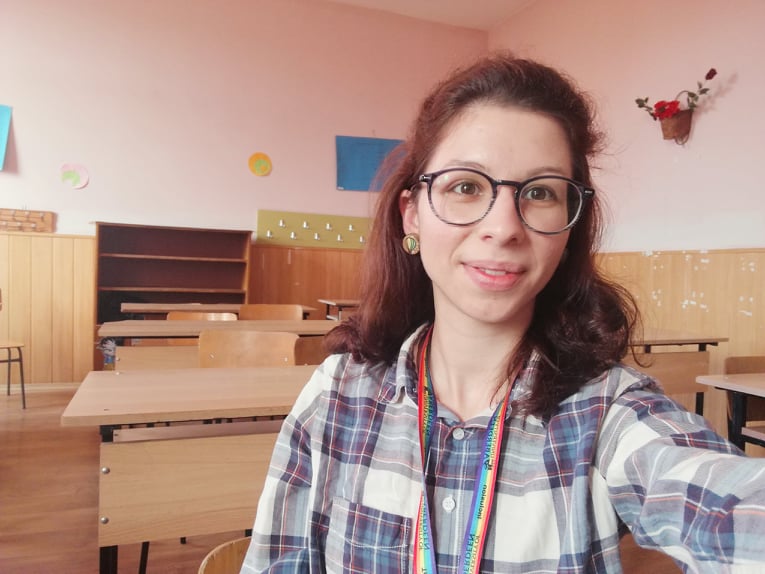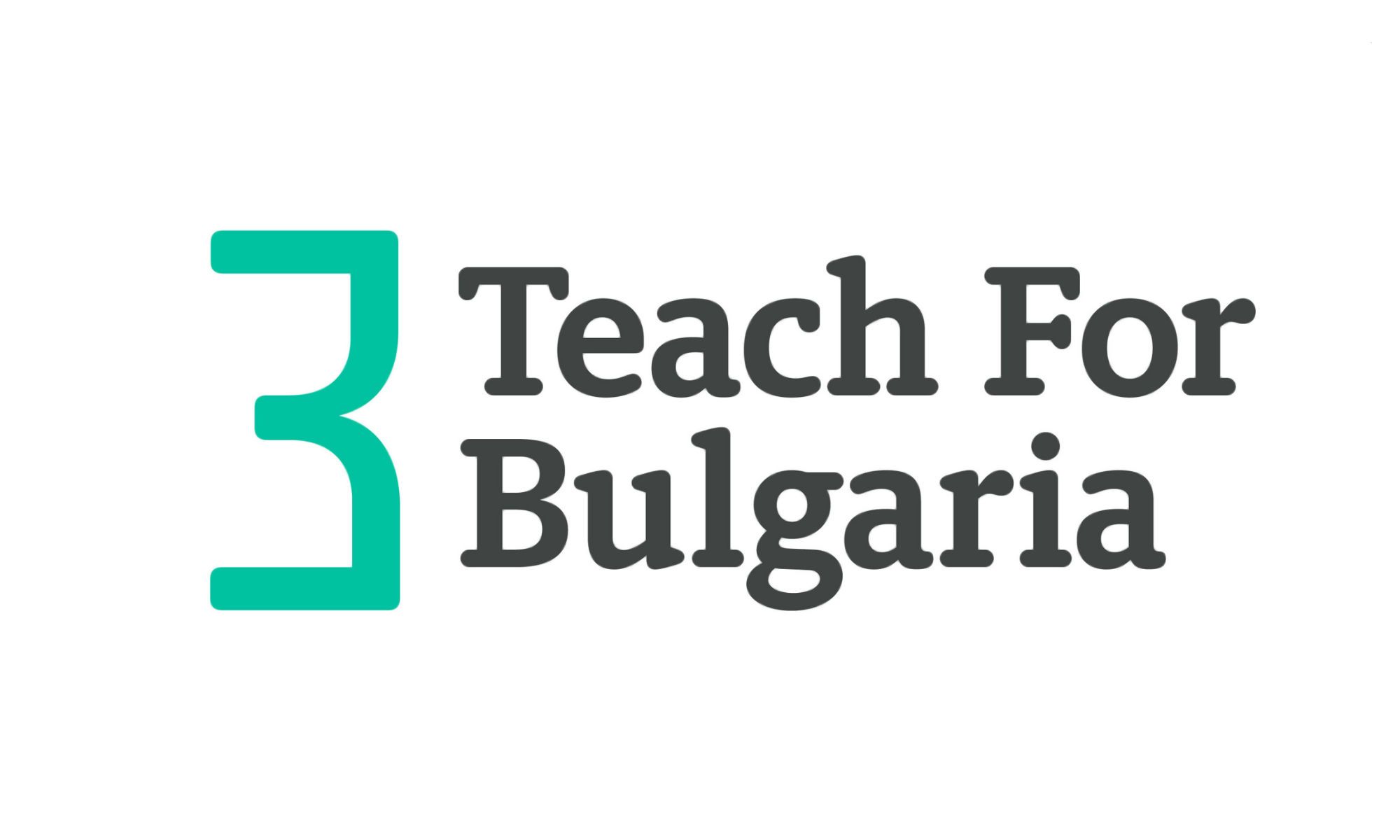Teachers around the world – different approaches with a common goal
Written by Istvan Bus, edited by Scott Green, photos by Teach for Bulgaria
“My parents are both illiterate, my mother more so than my father. She often laments that her life story would have been told differently if she was able to read and have a more stable and better paying job”, says Alex Lim, an accomplished pedagogue from Malaysia. His invention, a toolkit called MYReaders, helped troubled children to learn to read at a stunning pace. Children, on whom many were about to give up – but not Teach for Malaysia. They suspected that the inability to read is the root cause of the youngsters’ woes and the overall progress they made was their ultimate proof.
On the other side of the globe, another type of literacy came into focus – teenagers at Secondary School “Dr. Petar Beron” in Kostinbrod, Bulgaria, were absorbing the language of business. A financial expert, Kamen Trendafilov, presented the students with how to manage the money they earned during the summer and how to make the budget of a small firm they would open one day. This workshop, Financial Literacy Club, was implemented by Teach for Bulgaria three years ago.
As the name might reveal, Teach for Bulgaria and Teach for Malaysia are the local partners of a global organization, Teach for All. The network’s cause is to bring opportunity to children worldwide, especially to the disadvantaged ones. The approaching national holiday, the Day of Bulgarian Enlightenment and Culture, and Slavic Literacy on 24th May is the occasion to meet two dedicated teachers, Vasilena Voynikova and Yavor Hadzhiev, who are sharing with us how they spread literacy here, in Bulgaria.
“A 21st-century teacher must be creative, adaptive, independent and yet a good team player,” explains Yavor, while Vassilena adds that “a teacher should combine teaching academic knowledge with socio-emotional learning and developing students’ key soft skills which they need to become independent learners and find their path in life. My aim is to create a small puzzle piece through my work and add it to the whole of the education system.”
Not surprisingly, international exposure plays a crucial role in joining the global organization; Yavor found his calling to teach as part of a European Voluntary Service project in Poland, while Vasilena also represented Bulgaria abroad: “Whether it be voluntary experiences or internships, I have always strived to be out there and get involved in as many projects as possible. I was also Teach for Bulgaria’s ambassador in Aberdeen, Scotland and it naturally led to my desire to get involved in the Bulgarian educational system and transfer my passion to my students, thus hopefully broadening their horizons and inspiring them for future development.”
And what is the drive of their passion?
As Yavor puts it, “at school, no two days are the same – so if one also likes an ever-changing setting, then teaching is an option they should consider.” In Vasilena’s words, “I would recommend the teacher [sic] profession to people who want to know what true satisfaction feels like, who want to have a huge family with dozens of children and go to bed and wake up with their needs, difficulties, and achievements in mind.”

It is evident that teaching and learning are the two sides of the same coin, and both of them take inspiration from their school days. As Vasilena recounts it, “I vividly remember the days at primary school when I would play with my small-sized blackboard every afternoon after school. I would then teach my 'pupils' everything I had learned in class that day. My passion for teaching became even clearer at the end of my Psychology degree during which I had been working with children and adolescents with special needs.” According to Yavor: “At some point, teaching becomes too repetitive, blind to students’ needs and interests and stops requiring the ability to really think or do. One of my favorite moments in high school was debates, as then there would be interaction and knowledge would become something usable, something alive and colorful.”
Moreover, the classroom is not a one-way channel, adults can also learn from the younger ones: “From children, we can re-learn how to live and how to have fun. My students quite often remind me of the funny side of life, its genuineness, and how exciting life could truly be. They can teach us how to be ‘tough cookies’, as I always say, and how to cope with any situation provided they believe in themselves and are motivated to succeed,” reveals Vasilena.

She also tells us how foreigners and the larger society can support Teach for Bulgaria.
“The community and the general public can contribute to Teach for Bulgaria’s cause by taking part in initiatives and charities, spreading the word about its cause, becoming ambassadors in the country or worldwide. We, as teachers, are always looking for people who want to be our students’ role models and visit a classroom to inspire students and talk to them about their professional work. We are currently holding a charity event, 'Challenge yourself with a mission', which asks people to do a personal sports challenge and thus support Teach for Bulgaria’s work and goals,” suggests Vasilena.
The young need to pave their path in the world. And find their voice. Or as Ralph Waldo Emerson once put it, “Each age, it is found, must write its own books; or rather, each generation for the next succeeding.” Teach for Bulgaria is giving them the pen and paper.
